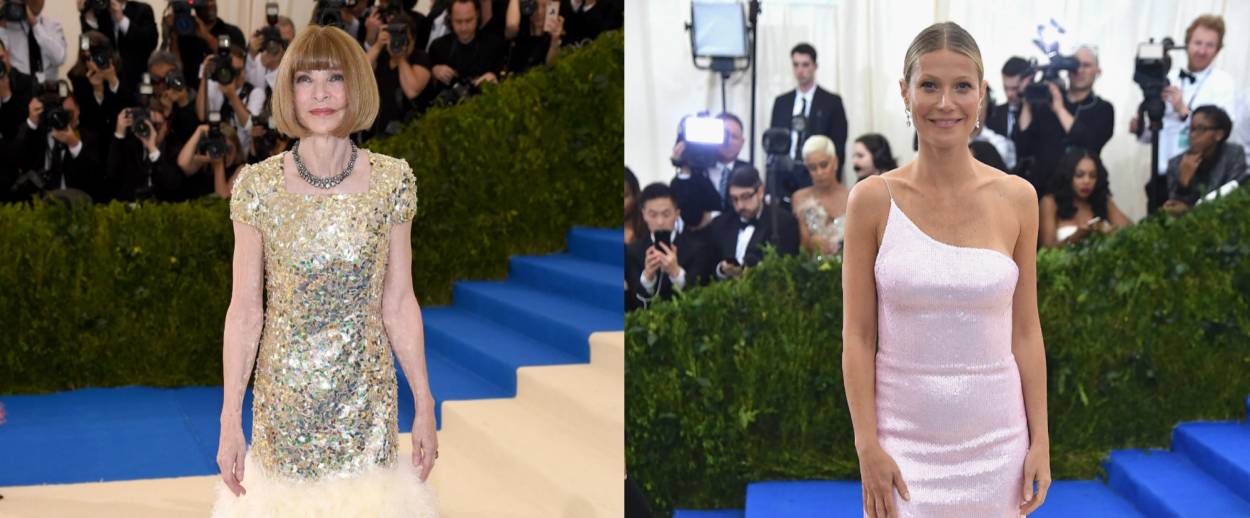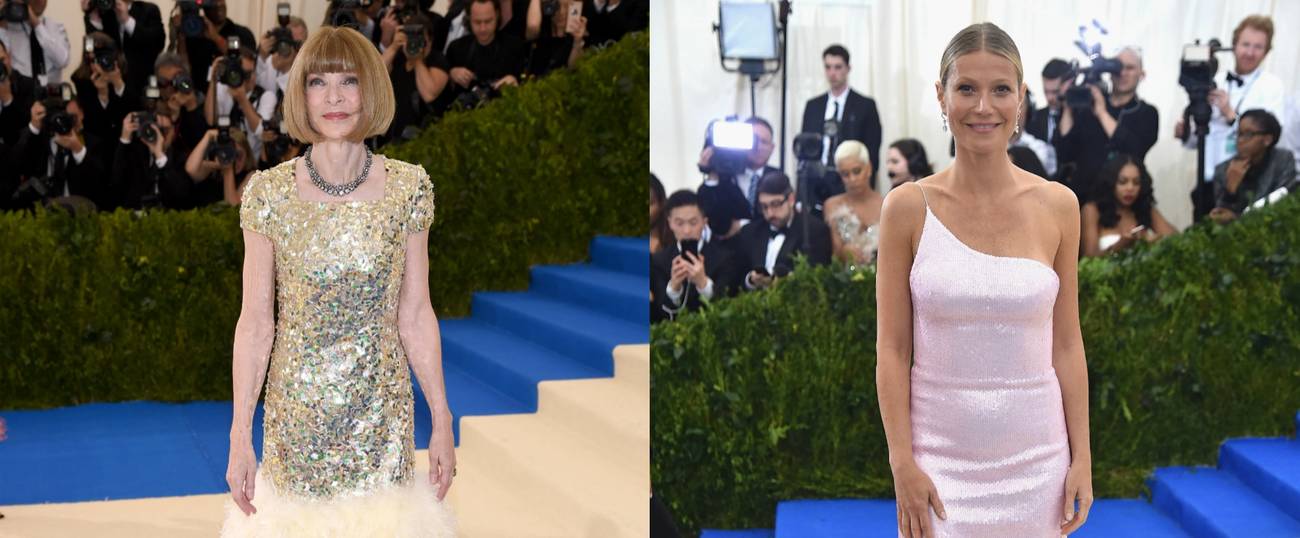Why Anna Wintour and Gwyneth Paltrow’s New Magazine Is an Act of Faith
Sometimes, the journey to wellness takes a little belief




Last week we learned about how Jessica Seinfeld’s new cookbook acknowledges that even sophisticated, thin, rich people—the “coastal elites,” if you will—sometimes deeply enjoying eating garbage food like pizza and chicken wings in addition to their health-first lifestyles. It was refreshing to hear her dismissive attitude toward things like hideously expensive wellness treatments, or the entire culture of aesthetic deprivation that has become de rigeur in the world of fashion and lifestyle. Seinfeld made me believe that there would soon be a time when we can all finally feel free to set aside the cold-pressed charcoal ginger juice and luxury steam colonic apparatus and yoni eggs, and just have a martini and a hot fudge sundae and then have a sloppy, strangely satisfying one-night stand, to be followed by a greasy Western omelet at a crappy diner someplace. Maybe, just maybe, I thought, her attitude might be a harbinger of a new day to come—a time when we might face genuine and seemingly insurmountable actual problems, like the polar ice caps melting or the possibility of a North Korean missile reaching Brentwood.
Well, friends, I may have spoken too soon. Because Gwyneth Paltrow and Anna Wintour are starting a new magazine.
A quarterly collaboration between Paltrow’s much-buzzed-about Goop website, combined with the stately imprimatur of American Vogue, the new venture will stay true to Goop’s signature brand of the woman who has everything but the ability to relax or feel reasonably healthy in any but the most carefully curated, thoroughly organic, scientifically unsound settings.
Sigh. Remember how most historians consider World War I and World War II to be the appetizer and entrée of one giant war?
Needless to say, even though the future of health care in this country is as clogged up as Congress, the artisanal-wellness industry shows no signs of abating—for those who can afford it. Somehow, we’ve never been hungrier for unproven, pseudoscientific ways to combat imaginary illnesses, short of, ya know, going to the actual doctor and taking actual medicine. It’s a kind of soft-focus, fancy-lady version of faith healing, different only than paying a lot of money to a huckster on a stage exhorting someone to throw away their crutches and emerge reborn from behind the curtain. Of course none of these things work. Of course all the vitamins and potions and powders and miracle creams and enemas are nonsense—be it coming from the mouths of Paltrow or Wintour or anybody else looking to make a buck. Why do you need a special $600 detox program when your liver already does that for free?
And then somehow, it finally occurred to me why this sort of thing, no matter how pointless or constantly disproved by medical professionals, isn’t going away: Because working isn’t the point. The point is to believe in it.
Wellness is a system of faith, no different than any religion. I’m not someone for whom the laws of kashrut have ever made any sense—I’ve always found them illogical (chickens don’t have milk! Plates aren’t sentient beings!), archaic, and designed to make sure whoever was charged with implementing them—women, obviously—could never get out of the damn kitchen and do anything else with their lives. But maybe whoever wrote them was onto something. Maybe the actual dietary requirements are totally arbitrary, and the point of them, the actual human need they are addressing, is a need for restriction. For the religious sense of purity and superiority—however illogical, unscientific, or unearned—that comes from self-denial. That’s the kind of internal glow that no moisturizer can hope to replicate.
So, to paraphrase the late great Carrie Bradshaw from Sex and the City, a woman seemed to keep her couture-ready figure the old fashioned way, by smoking a million cigarettes and eating maybe one meal a day, is “wellness” the new religion? Only if by “new” you mean something that’s been around for 4,000 years.
Rachel Shukert is the author of the memoirs Have You No Shame? and Everything Is Going To Be Great,and the novel Starstruck. She is the creator of the Netflix show The Baby-Sitters Club, and a writer on such series as GLOW and Supergirl. Her Twitter feed is @rachelshukert.